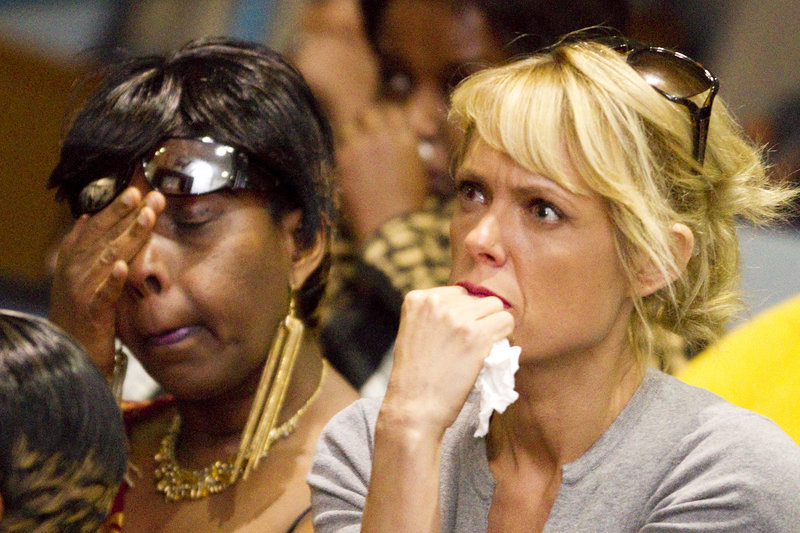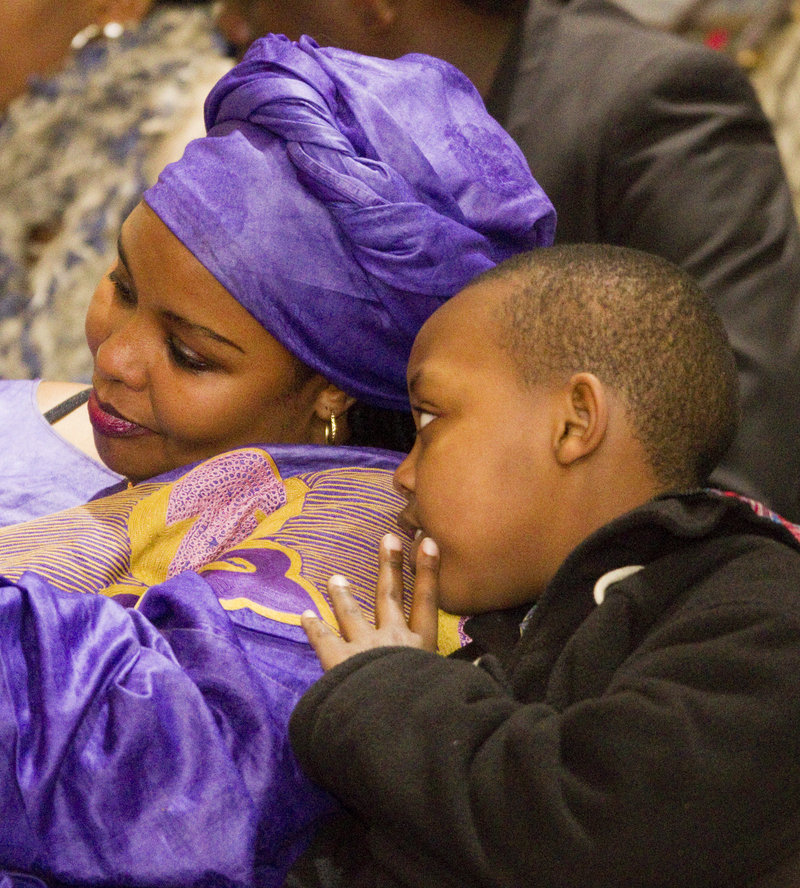PORTLAND – In 1994, more than 800,000 members of the Tutsi tribe were killed by Hutu extremists over a period of 100 days.
Nineteen years later, Rwandans living in Maine and in their homeland are still grieving and trying to recover from one of the worst genocides in Africa’s history.
About 200 Rwandans currently living in the Portland area gathered Sunday afternoon to honor the memory of those who died, and to remind future generations that they must remain vigilant to prevent another tragedy.
“We need to keep vigilant and to keep monitoring. It can happen again,” said Jovin Bayingana of Portland, a genocide survivor. “It’s like a volcano that can blow at any time.”
Sunday’s event, which was held at the Portland High School’s John Ford Auditorium, was organized by the Rwandan Community Association of Maine and the city of Portland.
Rwanda marks the genocide with two public holidays. The first, April 7, marks the start of the genocide, with July 4 or Liberation Day, marking the end.
Though the genocide ended 19 years ago, a documentary film, which was shown at Sunday’s event, reveals that the war between the tribes — at least in some people’s minds and hearts — is not over.
“There are still problems in the country between the two tribes and the government, but it’s not tension that you can see publicly,” said Tony Bikamba, a member of the Rwandan Community Association. “We still have a long way to go, but at least it’s a start.”
The film, called “CoExist,” was produced by Adam Mazo of Amazo Productions in Boston. It features several interviews with victims of the 1994 genocide as well as those who played roles in the massacre of the Tutsis.
“This film is a way to get people thinking about Rwanda and what we can learn from what happened there,” Mazo told the audience. “We made this film as a tribute to the Rwandans whose voices can’t be heard.”
The film reports that Rwanda has established a National Unity and Reconciliation Commission whose task is to ease tensions between genocide victims and their persecutors, many of whom have been integrated back into their villages.
One victim — identified only as Fifi — told the filmmakers that she would leave Rwanda if she could afford to because she doesn’t want to see the people who killed her family.
Sam, a Rwandan journalist, said the government’s line is that its people have reconciled their differences.
But, he said, “We have no other choice but reconciliation. You have to tolerate your neighbor.”
“Some reconcile, others coexist,” said Fatuma Nganza, a government official.
Mazo, an American filmmaker, said: “We made this film to wake people in this country up. We want to use this film to prevent another genocide from occurring.”
Bayingana, who participated in a panel discussion Sunday, described the genocide as “horrible. We did everything we could to hide from our killers.”
He said it’s important to gather on days like this to “mourn and to say, ‘Never again.’ “
Staff Writer Dennis Hoey can be contacted at 791-6365 or at:
dhoey@pressherald.com
Send questions/comments to the editors.





Success. Please wait for the page to reload. If the page does not reload within 5 seconds, please refresh the page.
Enter your email and password to access comments.
Hi, to comment on stories you must . This profile is in addition to your subscription and website login.
Already have a commenting profile? .
Invalid username/password.
Please check your email to confirm and complete your registration.
Only subscribers are eligible to post comments. Please subscribe or login first for digital access. Here’s why.
Use the form below to reset your password. When you've submitted your account email, we will send an email with a reset code.